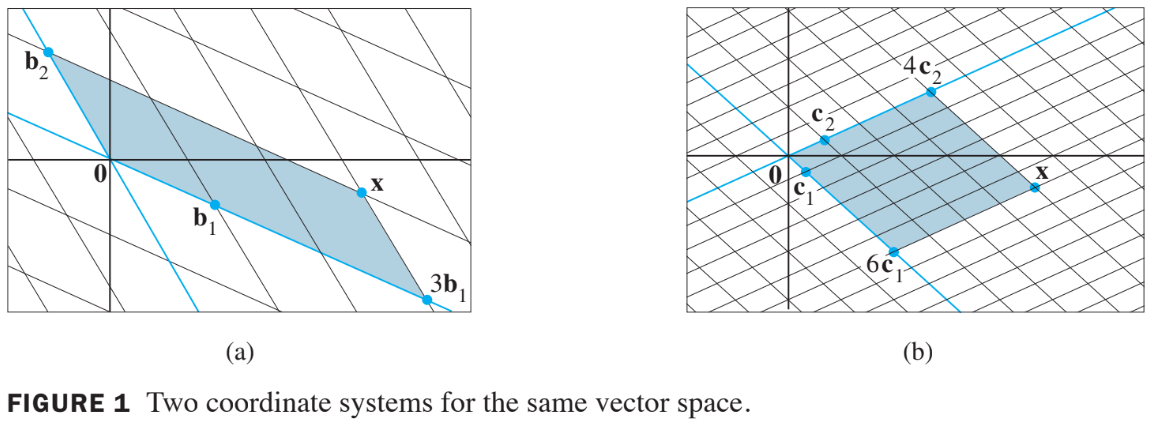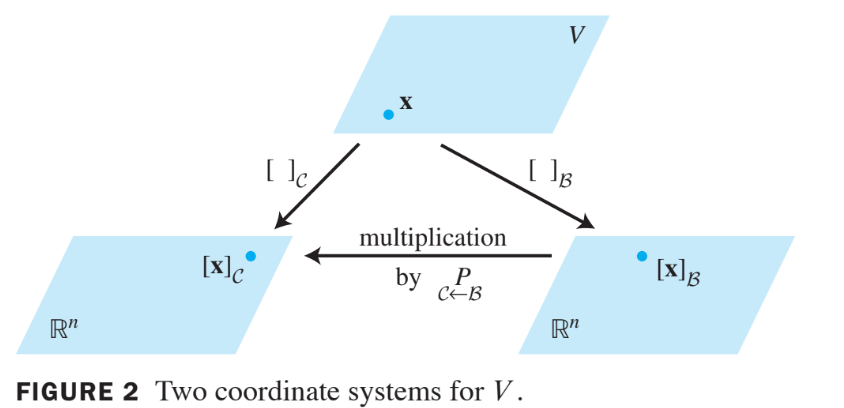Vector Spaces
4.7 Chage of Basis
Example 1
Consider two bases and for a vector space , such that
Suppose
That is, suppose .
Find .
Solution
- Apply the coordinate mapping determined by to in (2). Since the coordinate mapping is a linear transformation,
- We can write the vector equation as a matrix equation, using the vectors in the linear combination as the columns of a matrix:
- This formula gives , once we know the columns of the matrix. From (1),
- Thus, (3) provides the solution:
- The -coordinates of match those of the in Fig.1, as seen on the below.

Theorem 15:
Let and be bases of a vector space . Then there is a unique matrix such that
The columns of are the -coordinate vectors of the vectors in the basis . That is,
- The matrix in Theorem 15 is called the change-of-coordinates matrix from to .
- Multiplication by converts -coordinates into -coordinates.
- Figure 2 below illustrates the change-of-coordinates equation (4).

- The columns of are linearly independent because they are the coordinate vectors of the linearly independent set .
- Since is square, it must be invertible, by the Invertible Matrix Theorem.
- Left-multiplying both sides of equation (4) by yields
- Thus is the matrix that converts -coordinates into -coordinates. That is,
Change of Basis in
- If and is the standard basis in , then , and likewise for the other vectors in . In this case, is the same as the change-of-coordinates matrix introduced in Section 4.4, namely,
- To change coordinates between two nonstandard bases in , we need Theorem 15. The theorem shows that to solve the change-of-basis problem, we need the coordinate vectors of the old basis relative to the new basis.
Example 2
Let and consider the bases for given by and .
Find the change-of-coordinates matrix from to .
Solution
- The matrix involves the -coordinate vectors of and . Let and .
- Then by defintion,
- To solve both systems simultaneously, augment the coefficient matrix with and , and row reduce:
- Thus
- The desired change-of-coordinates matrix is therefore